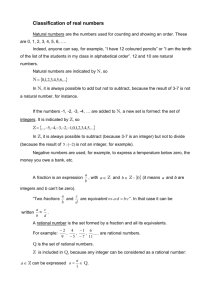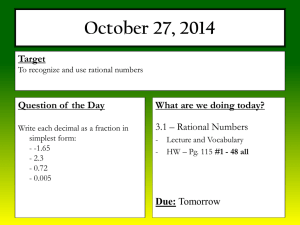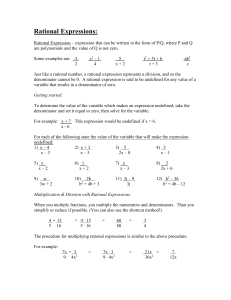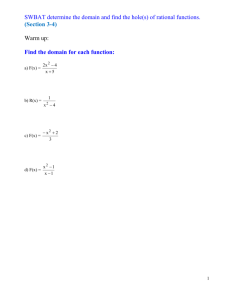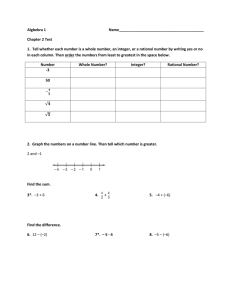Rational class and RationalTester
advertisement
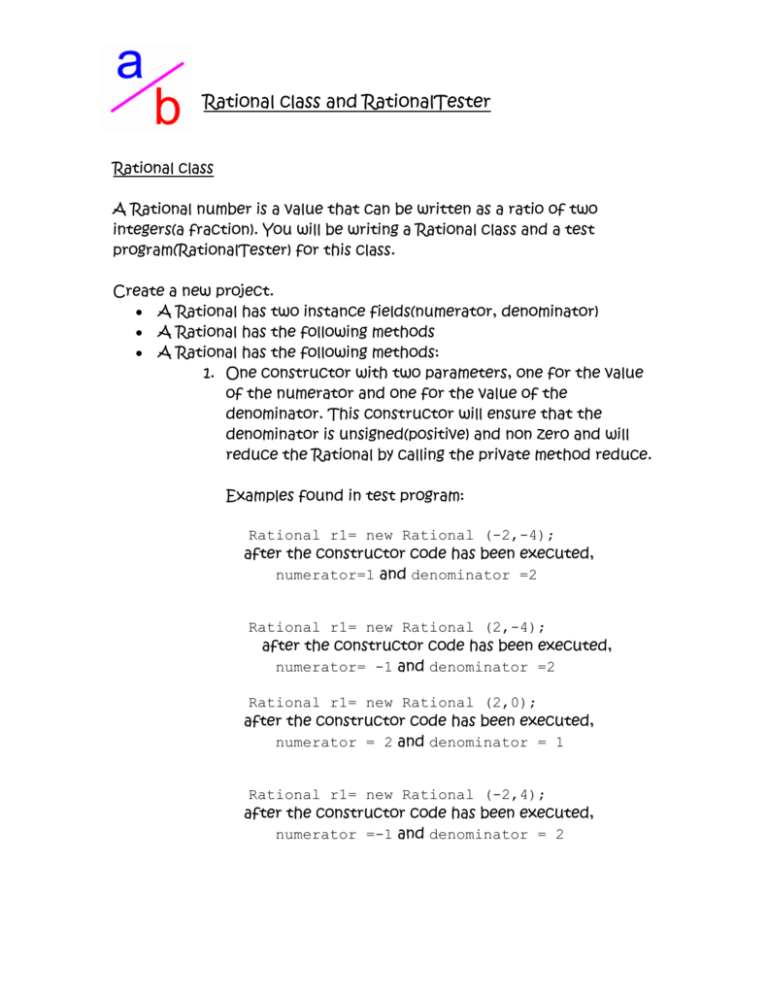
Rational class and RationalTester Rational class A Rational number is a value that can be written as a ratio of two integers(a fraction). You will be writing a Rational class and a test program(RationalTester) for this class. Create a new project. A Rational has two instance fields(numerator, denominator) A Rational has the following methods A Rational has the following methods: 1. One constructor with two parameters, one for the value of the numerator and one for the value of the denominator. This constructor will ensure that the denominator is unsigned(positive) and non zero and will reduce the Rational by calling the private method reduce. Examples found in test program: Rational r1= new Rational (-2,-4); after the constructor code has been executed, numerator=1 and denominator =2 Rational r1= new Rational (2,-4); after the constructor code has been executed, numerator= -1 and denominator =2 Rational r1= new Rational (2,0); after the constructor code has been executed, numerator = 2 and denominator = 1 Rational r1= new Rational (-2,4); after the constructor code has been executed, numerator =-1 and denominator = 2 2. public method getNumerator that returns the integer value of the numerator 3. public method getDenominator that returns the integer value of the denominator 4. public method getReciprocal that returns a Rational that is the reciprocal of this Rational. 5. public method add that has one Rational parameter and returns a Rational that is the sum of this Rational and adds Rational parameter. 6. public method subtract that has one Rational parameter and returns a Rational that is the difference of this Rational and subtracts Rational parameter. 7. public method multiply that has one Rational parameter and returns a Rational that is the product of this Rational and multiplys Rational parameter. 8. public method divide that has one Rational parameter and returns a Rational that is the quotient of this Rational and divides Rational parameter. 9. private method reduce that will reduce the numerator and denominator by their largest common factor. 10. public method equals that has one Object parameter. Compare this Rational to the parameter. The result is true if and only if the two have numerator values that are equal and denominator values that are equal. 11. public method compareTo that has one Object parameter. Compares this Rational to the parameter. Returns the value of 0 if this Rational is equal to the parameter, a value less than 0 if this Rational is numerically less than the parameter; and a value greater than 0 if this Rational is numerically greater than the parameter (signed comparison) 12. public method toString that returns a String representation of this Rational. Ex: if numerator =5 and denominator=7 toString returns “5/7”

